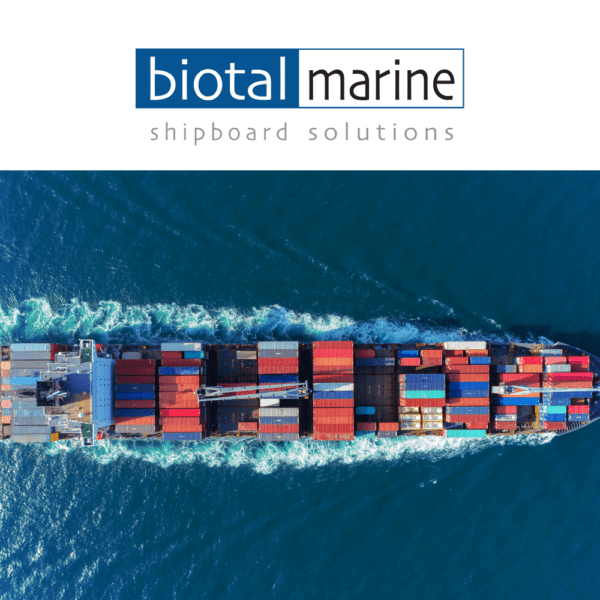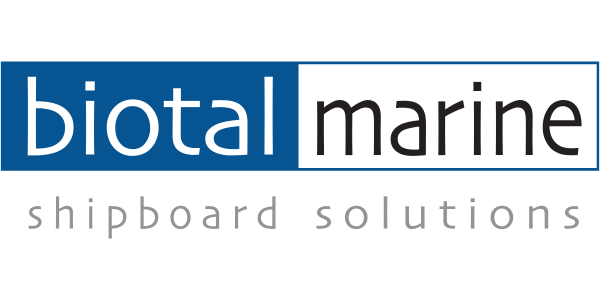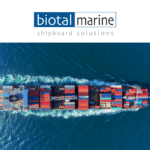Biotal MDS-PAK 3000 is designed for use in black and grey water systems, sewage holding tanks and marine sanitation devices; it is suitable for use in waste transfer stations and on-shore water treatments. Biotal MDS-PAK 3000 contains proprietary, application-specific bacterial strains chosen specifically for optimum efficiency in the marine sanitation device application. These strains have been scientifically verified and validated as being capable of degradation of all wastes commonly found in shipboard sewage plants (faeces, urine and paper). The bacteria have also been proven to be effective at degradation of a broad range of other organic wastes such as fats, oil and grease.
Available in:
11.4 Kg square buckets each containing 100 by 114g water soluble packets.
Applications:
Sewage plant
Holding tank
Biotal MDS-PAK 3000 contains a synergistic blend of billions of proprietary bacteria strains in convenient to use water soluble packages. These bacteria have been scientifically selected to promote the rapid breakdown and digestion of the variety of materials found in sewage systems including human waste, detergents, fats, oils and grease, paper, and other organic materials.
Although other companies offer apparently similar products, it is important to differentiate between a product containing bacteria strains chosen specifically for the application and a product containing generic ‘off the shelf’ bacteria. At Biotal Marine we use our in house R&D capability to select the optimum bacteria for any particular application and then produce these bacteria in our own state of the art fermentation facility and formulate the bacteria with optimised chemistry to create the Biotal Marine products. We have an ongoing Research and Development program to demonstrate the capabilities of the Biotal Marine strains and this can also show the superiority of the Biotal MDS-PAK 3000 application. Just as with human beings, not all bacteria strains are the same or will carry out a specific task with the same capability!
When used as part of a regular programme, Biotal MDS-PAK 3000 will continually promote the presence of powerful waste-degrading bacteria which will ensure the sewage treatment unit is fully biologically active. Although use of bleach that may enter a sewage plant should always be avoided, in reality it still happens. Our latest research has shown that the MDS-PAK bacteria continue to grow and degrade waste in the presence of 10-20ppm sodium hypochlorite. Therefore regular dosing with MDS-PAK will increase the ability of the sewage plant biomass to survive chemical loads of this type.
Advantages
Fast growing for commissioning and upset recovery of marine sanitation devices
Maintains optimum operating efficiency of biological sewage treatment plants
Will create a biomass that is more resistant to chemical loads such as bleach
Prevents odours associated with overloaded or poorly operating systems
Reduces build up of sludge and odours in holding tanks, making discharge easier
Eliminates need for costly manual or hazardous chemical cleaning of sewage treatment plants and holding tanks
Convenient water soluble packaging for easy dosing and no mess
Long product shelf-life
Regulatory environment
A revised Annex IV of the International Convention for the Prevention of Pollution from Ships (MARPOL) entered into force on 1 August 2005 and immediately applied to new ships engaged in international voyages of 400 gross tonnage and above or which are certified to carry more than 15 persons. Existing ships were required to comply with the provisions of the revised Annex IV by 27 September 2008. The Annex requires ships to be equipped with either 1) an approved sewage treatment plant or 2) an approved sewage comminuting and disinfecting system or 3) a sewage holding tank.
According to the revised Annex, the discharge of sewage into the sea is prohibited, except:
When the ship is operating an approved sewage treatment plant
When the ship is discharging comminuted and disinfected sewage using an approved system at a distance of more than three nautical miles from the nearest land
Sewage which is not treated or comminuted and disinfected has to be discharged at a distance of more than 12 nautical miles from the nearest land
Further revisions to the Annex adopted in 2011 designated certain Special Areas where discharge of untreated sewage is now prohibited. Thus the management of sewage and sewage systems is one of the many challenges on board today’s ships.



